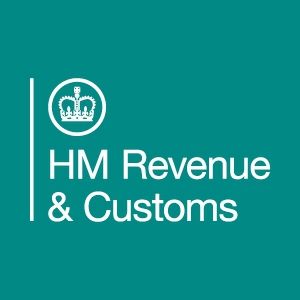
When Do I Need to Register My Business with HMRC
Starting a business in the UK comes with responsibilities and obligations, such as registering with HMRC and Companies House. It’s critical to understand what is expected of you. Registration allows for benefits and more freedom. This article covers everything you need to know about UK business registration.
What is Registering a Business?
Any new business in the UK must register with HMRC. Registering means telling the tax office that your business exists and paying all the required taxes according to UK law.
Why Should You Register Your Business?
You need to register your business for different reasons. The main one is to avoid problems with HMRC. If you don’t register or pay your taxes, you can be fined. You also need to register if your business involves specific trade activities like selling alcohol, for which you need a special license to work legally in the UK. If you plan to hire employees, you must register as an employer with HMRC. You also need employer’s liability insurance. Registering your business as a limited company can protect the trade name and minimize your personal financial responsibility as a business owner. So, there are many reasons to register your business, and it’s usually a good idea.
What Types of Business Need to Be Registered?
- Public limited company (PLC)
- Private company limited by shares (LTD)
- Company limited by guarantee
- Unlimited company (Unltd)
- Limited liability partnership (LLP)
- Community interest company
- Industrial and provident society (IPS)
- Royal charter (RC)
What Types of Business Need to Be Registered?
It is vital to keep in mind that when your business makes over £1,000 per tax year, it has to be registered correctly. However, if it produces less, there is the possibility of selecting the trading income allowance option. This preference allows businesspeople in the United Kingdom to receive an income of up to £1,000 without communicating with HMRC and revealing their business’ turnover. Nevertheless, trading income allowance is not always the best and most beneficial option from a tax standpoint. Thus, it is crucial for business owners to ensure that this alternative suits their situation. Furthermore, it is essential to remember that you can register with HMRC, regardless of whether or not your business meets the income threshold. By keeping this information in mind, business owners can avoid any difficulties and ensure that their business is in compliance with all proper regulations.
When Do You Need to Register Your Business With Companies House?
In the United Kingdom, business owners must ensure they comply with legal requirements, including registration with Companies House. Companies House is the official register of businesses in the UK and is responsible for maintaining records of all registered organisations. Registering with Companies House is essential to enable trading legally and gives businesses a sense of reliability and respectability. Nevertheless, it is crucial to determine whether registration is necessary for your business structure. If your company operates as a partnership or individual entrepreneurship, it is not mandatory to register. On the other hand, if you operate as a limited enterprise or limited liability partnership, registration with Companies House is mandatory. It is worth noting that if individual entrepreneurs want to register their business, they must alter the business’s structure and transform into a limited liability company. To ensure a smooth registration process, it is recommended to seek professional help and guidance.
Can You Run a Business Without Registering It?
In the UK, registering your business with Companies House is necessary by law. You must do this before starting operations. If your income is less than £1,000 per year, you may not need to declare it, but in all other cases, declaring it to HMRC is required.
What Happens If You Don’t Register Your Business in the UK?
You must register your business and declare income to avoid fines and tax liability. Limited enterprises and partnerships must be registered with Companies House. UK law requires income declaration for earnings over £1,000.
What Happens If You Don’t Register Your Business in the UK?
In the UK, any business must register if it generates income and profit, sells goods or services, or earns interest. For small businesses with less than 50 employees and a turnover of less than €10 million, registration is typically as a sole trader. As a sole trader, owners only need a national insurance number, receive all profits and must pay taxes. This structure is also better because it is easier to convert to a limited liability company than vice versa.
What Happens If You Don’t Register Your Business in the UK?
At Your Head Office , we offer business registration and tax declaration services for all types of businesses in the UK. Avoid fines and legal consequences by entrusting us with your registrations. Focus on your critical business processes while we take care of the legal requirements. Contact us for more information.
Frequently Asked Questions
UK businesses legally need to register with relevant authorities. Business owners must register with HMRC and Companies House, with the latter being a prerequisite except for partnerships and sole proprietors.
You must comply with the required registration terms for your business as it is a prerequisite for operation and subject to UK law.
Registration and declaration non-compliance can result in hefty fines and tax liabilities. Partnering with a trusted company formation provider can prevent such consequences.
Business Address

A Trading Address is a Virtual Office Address which you can present as your, To receive your mail and we forward it directly to you.
Registered Office Address Service

A Registred Office Address Service is everything that a Virtual Office + the fact with Companies House you can use the same adddress to put for each of the directors of the company giving you that extra security and privacy from your suppliers and customers.




